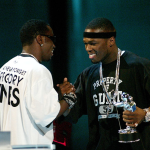a dynamic that could easily find its way into a case study on mental health disputes and even legal guardianship complications involving minors.
The lyrics, known for their raw and hard-hitting nature, left little to the imagination regarding his feelings at the time. In the track, he infamously refers to his mother as a “selfish b***h” and expresses a wish for her to “burn in hell.” He further accuses her of “poppin prescription pills” — a reference that might resonate with audiences familiar with addiction treatment programs and prescription drug dependency litigation, which often involves medical malpractice lawyers and rehabilitation center insurance policies.
This lyrical assault was a reflection of the fraught relationship between Eminem and Debbie, which had previously escalated to legal action.
In 1999, Debbie filed a lawsuit against the rapper, accusing him of slander and defamation. She initially sought $10 million but ultimately settled for $25,000 in 2001 — a reminder of the high legal costs involved in defamation cases, often requiring experienced entertainment attorneys or personal liability coverage under a specialized private insurance policy.
While Eminem had lashed out at his mother in other songs, Cleanin’ Out My Closet stood out for its particularly venomous tone, raising questions around emotional wellness and the psychological impact of childhood instability, often treated through behavioral therapy and trauma-informed care.
A Change of Heart: The Apology in “Headlights”
Years after its release, Eminem had a significant change of heart regarding Cleanin’ Out My Closet — a moment of reflection that parallels therapeutic healing and what wellness counselors call “cognitive reframing,” a key element in chronic emotional distress treatment.



